Fiery. Demanding. Leader - Reflections on Darren Ferguson's time as Doncaster Rovers manager
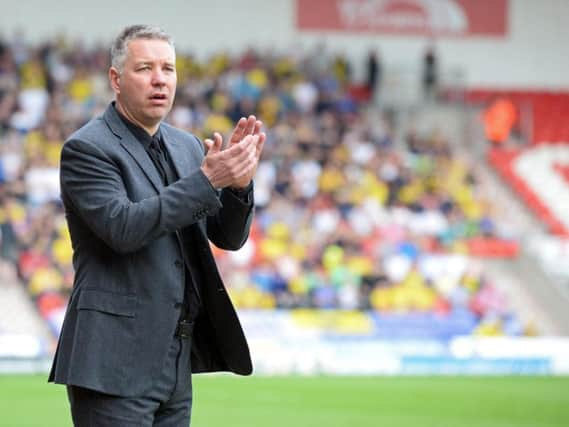

That Darren Ferguson’s up-and-down tenure at Doncaster Rovers began and concluded on such contrasting planes is perhaps fitting.
There was plenty of elation and an equal amount of frustration over 32 memorable months of his premiership at the Keepmoat.
Advertisement
Hide AdAdvertisement
Hide Ad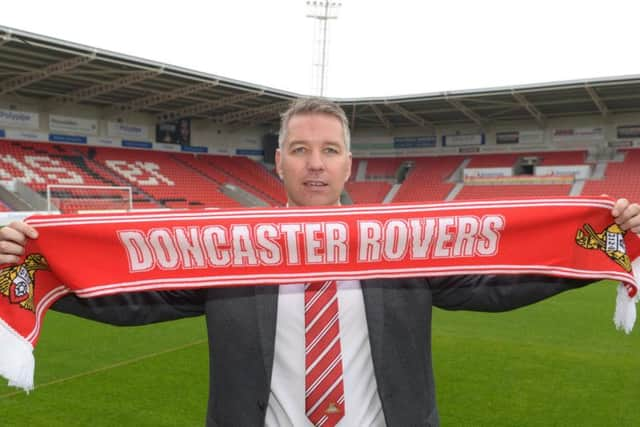

A rarity in modern football, he departed of his own volition without another job lined up.
And he did so with the Rovers fanbase split on the merits of continuing their journey without Ferguson at the helm.
There was a considerable backward step, a triumphant and emphatic promotion and a season of consolidation which some found more than a little disappointing.
Up-and-down but undeniably memorable.
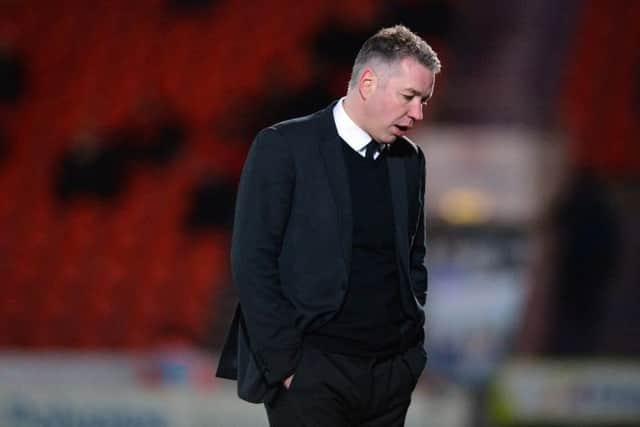

He walked into the Keepmoat in October 2015 with chief executive Gavin Baldwin speaking of feeling the hairs on the back of his neck stand up when sitting in Ferguson's kitchen listening to him lay out his vision for the club.
Advertisement
Hide AdAdvertisement
Hide AdIt was a statement from the CEO that raised a few eyebrows but it was clear he was impressed. And, in landing a manager with three promotions to his name in the lower leagues, it was without question an impressive appointment from Baldwin and company.
Admittedly, I was a little nervous when he took the job. As much as wondering what a manager can do with the team, a club journalist will worry just as much about the character they will soon be dealing with on a regular basis.
The name Ferguson obviously brought to mind a certain Sir Alex, whose relationship with the media was far from smooth in most cases.
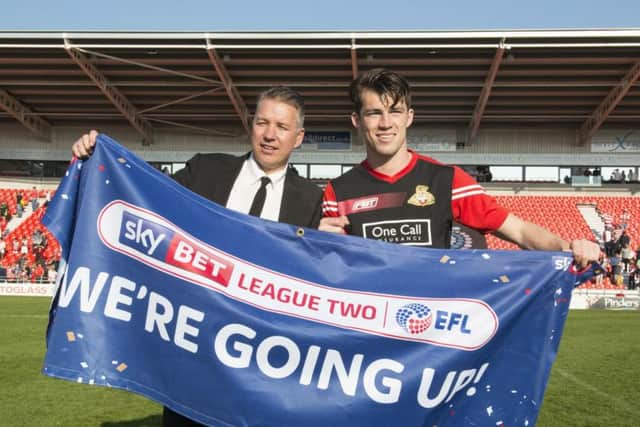

So would the son be like the father and ensure a torrid time for writers?
Advertisement
Hide AdAdvertisement
Hide AdNerves would quickly give way to relief. Ferguson was a pleasure to deal with throughout the ups and downs of his time in charge.
Barring one incident - mentioned below - where I felt he was unfairly trying to make me look daft, he was incredibly level-headed and professional when speaking to the media.
There were not many occasions when I listened to a post-match summary from Ferguson and disagreed with his thoughts. Never too harsh, never over the top with praise - always steady and considered.
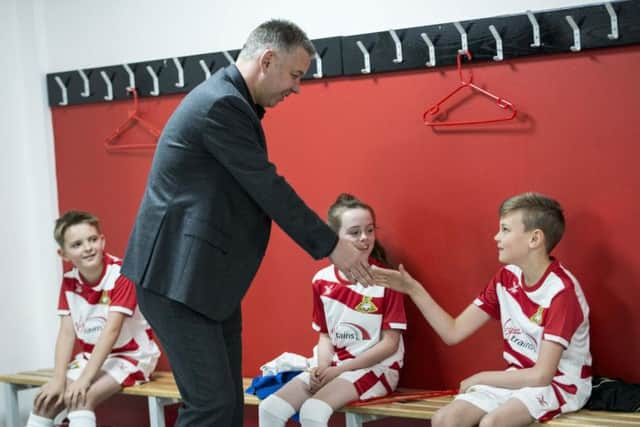

And when one of his players would follow, you would quickly discover he had said the same thing to the team before he left the dressing room.
Advertisement
Hide AdAdvertisement
Hide AdSuch honesty is welcomed in a time when spinning the most positive line is seen as the ideal from so many football clubs.
One thing that became clear from the start - and persisted throughout his reign - was that Ferguson had no desire for any interaction beyond the formalities which his position dictated.
Once the final questions were asked and answered, the meeting was over, whether it be a press conference or a one-on-one interview in his office at Cantley Park.
That is not to say he did the bare minimum with the media – he would always make time for requests.
Advertisement
Hide AdAdvertisement
Hide AdBut his manner ensured you could only glean what made him tick professionally, not personally.
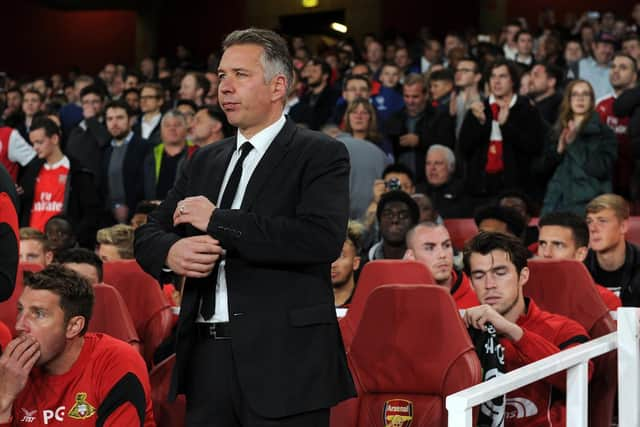

Arguably, this made him all the more a fascinating character to observe.
One of my favourite interviews came around the first anniversary of his arrival at the Keepmoat and was conducted over a good hour in his office at the training ground.
It started with a conversation about his first 12 months and where he wanted to take Rovers.
Advertisement
Hide AdAdvertisement
Hide AdThen I took the opportunity to ask him about himself - his playing career, moving into management, his philosophy for the game.
I even broached the subject of his dad - something I had been reluctant to mention in the previous year. And I was surprised to find he was open to discussing life in the game as the son as arguably the greatest manager in history.
But that insight into Ferguson as a man would prove a rarity.
There was a consistency to that. Observing him, it certainly seemed as though work and home life were separate and defined. When it was time to go home, it was time to go and he was unhappy with anything that delayed that.
Advertisement
Hide AdAdvertisement
Hide AdIn a demanding job, there has to be some respect for making time for a personal life, particularly when he was delivering professionally.
There were times when Ferguson came under pressure from sections of the support and his status would be discussed among members of the media.
Despite the ups and downs I cannot remember anyone in my profession ever saying he was not up to the job. Most of the time he was referred to as a really good manager and there was a general bewilderment of why he found himself under scrutiny.
Though I did not agree with it myself, there were stretches of time during his tenure that ensured there would always be question marks over Ferguson.
Advertisement
Hide AdAdvertisement
Hide AdAn unthinkable relegation, running away with League Two only to finish third and another disappointing finish to a campaign will do that.
All had been positive at the start. Rovers looked a side transformed immediately as they won away at Shrewsbury Town in his first game in charge.
There was a considerable injection of positivity into a side that had been on its knees and Rovers began climbing the table.
By early January 2016, there was genuine talk of a play-off push, backed up with an impressive performance in defeat to Premier League Stoke City in the FA Cup.
Advertisement
Hide AdAdvertisement
Hide AdBut that defeat would prove to be the start of a 17-match winless run that ultimately was irreparable damage en route to relegation.
He is a tough taskmaster. Players are expected to work their socks off and never stop learning or getting better.
In his first season though, it seemed as though there was no margin for error in his eyes.
If a player made a mistake in a game, there was no surprise when they did not start the next one.
Advertisement
Hide AdAdvertisement
Hide AdIf they made more than one, you probably wouldn’t see them for a long time afterwards.
Several players got this treatment – even Andy Butler.
But this sort of approach cropped up only occasionally in the two seasons which followed.
There had been questions of whether such treatment had played a part in the 17-game winless run which ultimately relegated Rovers. Did he go in too hard when a more comforting approach was needed?
It cannot be said that Ferguson does not learn, adapt or change based on events.
Advertisement
Hide AdAdvertisement
Hide AdStill tough, he was not as quick to write off players in subsequent seasons. He became much more of a nurturing figure with his desire to improve players and the team as a whole at the forefront of his approach.
Perhaps it was because he was working with players he wanted to work with or perhaps it was Rovers blazing a trail through League Two on their way to winning promotion with ease.
But, ultimately, what he wanted from his players on an individual level was improvement.
And he got it.
Whether that be from someone in the early stages of their career like Joe Wright or Niall Mason, or in the twilight years like Andy Butler or James Coppinger, Ferguson drew something extra out of his players during his time at Rovers.
Ask any of those what Ferguson has done for their careers.
Advertisement
Hide AdAdvertisement
Hide AdThere is a great deal of appreciation shown from his now-former players.
And it comes down to attention to detail, which starts even before a player has agreed to join the club.
The format of his meetings with potential signings was a regular topic of conversation with players in awe of the detail Ferguson came armed with.
Working with analyst Adam Ridgewell, Ferguson would put together clips with examples of the attributes that had attracted him – plus areas where he saw improvements could be made.
Advertisement
Hide AdAdvertisement
Hide AdMore than one player said that personal, tailored touch was a major factor in them agreeing to join Rovers.
And it continued once they had signed. Those areas for improvement were focused upon and it was expected that those improvements were made. Mistakes were pored over, positives emphasised and praised - all of it designed to make players better.
The likes of Mitchell Lund, Harry Middleton and, laterly, Liam Mandeville know exactly what happens when improvement does not come. That ruthlessness remains under the surface.
What cannot be denied is that Rovers have lost a figurehead, a man who oversaw the playing arm of the club from top to bottom.
Advertisement
Hide AdAdvertisement
Hide AdFrom day one, Ferguson went through all in his remit with a fine-toothed comb and set about making changes to bring standards up to his liking.
Professionalism was the order. Staffing changes came quickly and continued throughout his tenure.
He had a vision for how Rovers should be run and he powered through with that. That vision meant his position was never truly under threat, whatever was happening on the pitch.
The average age of the squad reduced dramatically, the playing staff tightened considerably and a playing philosophy passed from the top down.
Advertisement
Hide AdAdvertisement
Hide AdFerguson departs Rovers with the youth set up more vibrant than it has been for years. There is a strong argument that the youth arm is in the best shape it has been since it was effectively dismantled under Ken Richardson.
For these reasons, suggestions Rovers are no further along now than they were when Ferguson took charge are simply nonsensical.
He often found criticism unreasonable. It is what drew the biggest reaction from him.
Whether it was the backlash to the winless run which ultimately cost the League Two title or the disgruntled voices which spoke out towards the end of this campaign, he would often be dumbfounded at the dissenting voices which appeared in the stands.
Advertisement
Hide AdAdvertisement
Hide AdIt led to the immortal line ‘some people should be careful what they wish for’ – uttered a few months ago and now looking incredibly prophetic.
Ferguson, particularly towards the end of his tenure, clearly felt there was a lack of perspective about where Rovers were.
And he was not shy in letting people know that.
So, the dissatisfaction which came at the end of the tenure was as much Ferguson’s as anyone else’s. Whether that be disappointment at the levels of finance made available to him or the feeling he was under-appreciated.
It was a time in Rovers history that was indeed up-and-down but certainly memorable - long after the goosebumps faded.
'WE WON'T GO DOWN'
Advertisement
Hide AdAdvertisement
Hide AdOf all the personal memories of Ferguson’s time at Rovers, one post-match press conference from February 2016 will live with me for the rest of my career.
Rovers had just lost to 1-0 to Sheffield United at the Keepmoat, a rather unfortunate result that stretched the winless run to six matches and left them six points clear of the relegation zone.
I asked a question, a simple one which could have been seen as teeing Ferguson up for a simple answer.
I don’t recall the exact wording but I was suggesting Rovers may need to sort out the form in order to avoid being dragged into a relegation fight.
Advertisement
Hide AdAdvertisement
Hide AdFerguson’s response drew stunned silence - so much so that he repeated it twice.
“We won’t go down.”
The jaws-agape reaction from the press room came because managers simply do not make such statements. Certainly not three months from the end of the season. Or ever.
Expecting more of a lengthy riposte, I had to scramble for a follow-up.
I asked if the players maybe needed a gentle reminder of where they could quickly find themselves.
“Maybe you should go downstairs and have a word with them.”
Advertisement
Hide AdAdvertisement
Hide AdIt was the only time I can remember from his two-and-a-half years when he got genuinely spiky with me.
There were undoubtedly times when he disagreed with the sentiment behind certain questions but Ferguson is very good at responding in a respectful manner in such circumstances.
Just as he was when, at the end of the season with Rovers relegated, I brought up the ‘we won’t go down’ statement.
He laughed. “I was wondering when that would come up.”
He explained, at that stage, he did not believe relegation was a possibility.
Advertisement
Hide AdAdvertisement
Hide AdI agreed with him. Few could have predicted another 11 games without victory would follow that South Yorkshire derby.
It was an unforgettable moment that left a press room stunned and Ferguson with egg on his face.